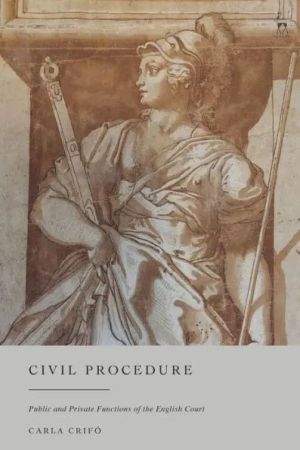
This book examines the history, theories and legal principles underpinning the rules and practice of civil litigation in England and Wales.
English civil procedure has been the object of renewed interest in the last 20 years since Lord Woolf proposed and implemented reforms of the civil justice system on a scale unequalled since the mid-19th century. Focusing on the overarching theoretical framework of civil procedure, this book provides a rigorous contextual analysis of the rules and practice of civil litigation in England and Wales and identifies the applicable rule of process and its rationale and connection to these rules and determines the scope of judicial discretion and regulatory flexibility.
Chapter 1 sets out the core themes of the work, Chapter 2 provides the important historical background to modern English rules of court. Chapter 3 focuses on the rules of court as addressed to and concerning the litigant. This chapter therefore presents the 'fundamental principles' as the 'promises' by the state to litigants, that their rights will be enforced. It addresses the nature of a civil lawsuit and of the right to sue itself, whether private, that is, part of the litigant's “estate” either directly or as an extension of his other property at stake, or public, as the forum for the determination of the substantive law albeit in an individualized context. This also includes a discussion of the need for – or existence of, in all but name – separation between civil and administrative adjudication. Chapter 4 identifies the current theories of justice determining the function of the civil court in English law and their application to discrete moments of litigation but from the perspective of the way in which the judges conducting the litigation have their role and power reflected and amplified in the rules.
Chapters 5 and 6 addresses the nature of the result of litigation, primarily the judgment (but also other types of final adjudicative decisions) and its characters, and the possibilities and nature of appeals in the current system. Chapter 7 considers the result of litigation in the notoriously difficult and uneven area of enforcement of final judgments.